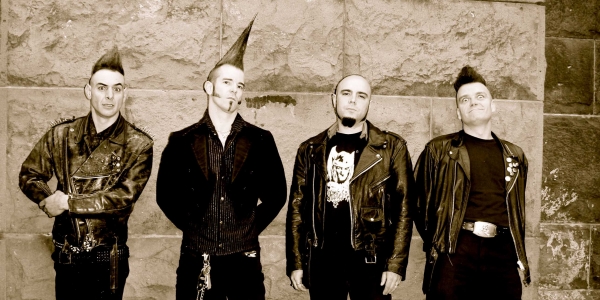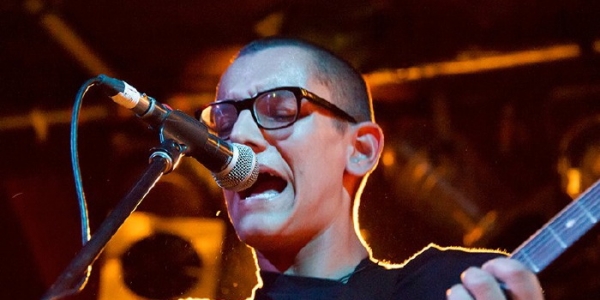Fireballs are flag-bearers for the glory days of Melbourne pub-rock. As the bandits of ‘psychobilly’ they’ve carved a niche for themselves that scratched the harsh veneer of thrash/metal/punk with a bit of friendly rockabilly. And as a band that’s incredibly difficult to pigeon-hole, it makes sense that for their upcoming Melbourne shows – at their own Hellbourne Weekender – they’ve lined up a host of incredibly diverse bands (a rare feat in Melbourne, where gigs tend to be very genre-specific). Fury says, “We all fall under the banner of subculture so there’s no reason why we should stick to any preferred genre. It’s also good to get a whole heap of different people in to see what you’re doing and hopefully spread the word around. If you’ve got your blinkers on you can open yourself up to all sorts of styles. And our only prerequisite for what we like or who we play with is ‘high energy’, whether it’s punk or garage or psychobilly or metal or whatever.”
The most charming thing about Fury is his humility. He’s as giddy as a schoolgirl about the upcoming overseas jaunt. “I’m still trying to pinch myself to believe it’s actually happening and I keep staring at the tickets in my hands to remind myself!” The band has a healthy respect for a place like Finland, which is renowned for championing an excellent metal/punk scene. “It’s always good going over to places like that, like Sweden and Norway are known for their metal scenes and I think our version of what we do with the psychobilly stuff sort of seems to translate. It’s just a good feeling to actually be invited over to do it,” he says.
When probed about how the tour came about, Fury laughs, “The Mavericks crew contacted us and said, ‘come on over, let’s party!’” Although what they have planned sounds more like punishment than party. “It’s literally like a five or six day turnaround so not much time on the ground but a lot of time in the air,” he says.
Not one to ever be phased by a punishing tour schedule (Fireballs at their peak played up to 400 shows a year), the ever-positive Fury describes what drives him to still be playing shows after so many years: “There’s a fire, a passion that’s in there that’s got to be stoked. I still get nervous when I get on stage, and if I ever overwrite that nervousness, well, what have I got left, you know?”
It’s hard to mainline that sort of positivity in a scene such as Melbourne’s, where beloved live music venues, particularly those of the punk variety, continue to fall victim to various external pressures (liquor licensing, noise restrictions, gentrification, and so on) – or is it? Fury takes a pretty pragmatic stance. “Years ago you’d be playing full-tilt, and everyone really liked loud music but now with all the various regulations and pressures from external sources it’s obviously much harder. In place of venues like The Arthouse, I think others will crop up and it’s not the end of the world. In another few years it’ll all change again anyway. Melbourne is constantly changing and I think – if anything – the music hub will move out of the centre of Melbourne and out to the burbs. And then we’ll all become everything that we never wanted to be!”
The band is currently writing new material, to follow 2010’s Hell Rider, but our brief encounter was cut short as Fury entered the “restricted section” at the airport, unable to elaborate – or perhaps creating a shroud of mystery? It is expected we’ll see some pretty great lyrics on that one, as Fury is pretty good at inventing words. While he protests that it’s “very early in the morning” and he can’t be held accountable for the words he’s making up, this interviewer plans to make heavy use of his term “metallisation” which is basically what happens when metalheads like a particular genre of music – in their case, rockabilly – and want to amp it the fuck up. Genius. Go forth and use as you see fit and be comforted in the knowledge that even those who have been a part of Melbourne’s music scene since the early ’90s not only still want to be a part of it but are positive about its future.
BY JESS SHULMAN

